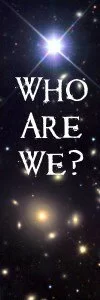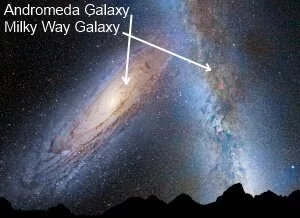 Exploring our connection to everything and everyone that exists within the known universe...
Exploring our connection to everything and everyone that exists within the known universe...
Personal Microcosms and Disconnection
I have found that many of us seem to live within a microcosm, viewing our immediate world as if it is much larger than it really is. Some religions would have us to believe that their gods our solely focused on mankind and the planet earth.
I once believed this way and felt very disconnected even though I was seeking a connection with something greater than myself. I became very egocentric; and I still am, in some ways, for sure. But if I want to be honest with myself, the world does not revolve around my life - I am not the center of the universe (though I am embarrassed to admit I may act that way, at times. Oy.)!
Through examination of nature and a much needed personal reflection, I feel that if I hold onto my limited viewpoint, it tends to devalue others including different life forms such as plants and animals. I am desiring to comprehend that everything has value and is just as important as my human existence. I no longer want to cheapen the importance of life, especially that which seems distant to me, when I am not able to fully identify with it.
FINDING A GREATER CONNECTION WITHin OUR WORLD
For me to be able to convey my thinking, I must first attempt to share with you a greater perspective of which I try to hold. Being a fan of the TV show, Cosmos, I have enjoyed how it has caused me to contemplate the vastness of our world. I can't help but feel there is something much bigger going on than what we see when we are 'earth-centered.'
I offer these mind-expanding tidbits for reflection:
- Scientists estimate that there are 200 billion suns (stars) in our own Milky Way galaxy (where we live) with at least 100 billion planets (8.8 billion of them possibly able to support life)!
- Scientists believe there are 10 trillion galaxies in the known (what we can see) universe. Imagine that for a moment if you can: The observable universe is
 estimated to contain possibly 100 octillion of stars (100,000,000,000,000,000,000,000,000,000) within trillions of galaxies, much of which remains unexplored and unknown. That would mean there could be 1,000,000,000,000,000,000,000,000 planets in the observable Universe, if not more!
estimated to contain possibly 100 octillion of stars (100,000,000,000,000,000,000,000,000,000) within trillions of galaxies, much of which remains unexplored and unknown. That would mean there could be 1,000,000,000,000,000,000,000,000 planets in the observable Universe, if not more! - And if you think our universe is mind-boggling, consider that some scientists propose that there are an infinite number of universes, hypothetically, calling it a 'multiverse' or 'meta-universe. If true, that means the world is far too vast to comprehend, inconceivable.
- By studying light absorption (spectrophotometry), early explorers of the heavens could look at other planets and stars to determine what elements, also common to us on earth, they were made from. Think about that idea for a moment. When the universe began, it is believed it started with a bang (whether natural or supranatural, it does not matter for my point to be made), the idea being that everything in our known universe is connected, expanding, and evolving. One might say that everything is moving and 'alive' in a grand way, if you will. As it has been stated, everyone and everything is "stardust."
- Within the seeming chaos is found an order, something in control of it all, it would seem.
Without understanding how big the world is, how can we better understand our place in it? If my perception of the world is small, then I tend to make myself much larger than I am. Shrinking personal ideas of grandeur is the start of feeling 'connected' to something greater.
Take Aways From Our Feeling Small
Initially, when we begin to understand how vast our world truly is, it is only natural that we tend to feel very small and, perhaps, insignificant. But to believe so misses the bigger picture: our connection to all of this.
Everything in the natural world shares an important link, coming from the same source. There's no escaping it: all that exists in the natural world is fixed together. Each thing, because it is a part of the entire universe, affects the whole in some way. Therefore, all is important - everything is influential. And if the natural world can teach us anything about a greater, yet-to-be understood, unseen world parallel to our own (e.g. heaven or spirit), then, it is this: what is observed in our the natural world is likely true in any kindred plane.
Is There an Order of Importance?
Even though this universe shares more in common with us than we might appreciate, perhaps, there is not one thing more important than the other. This might sound crazy, and though I'm still trying to wrap my brain around the concept, I fundamentally believe it has merit; and this is what I am struggling to comprehend: what seems to be inanimate is just as important as any life-form, be it a plant, an animal, or a person, etc. And if true, we should learn to not be so 'self-centered,' or 'human-centric,' as if the universe revolves around us (or our planet). To do so is difficult for there truly is no selfless act. Consider that everything we do, even though it may help another, is self-centered. Try as we might, everything we do revolves around ourselves.
WHAT ABOUT SEPARATION?
Let's bring it back down to what we know on this planet: separation. People seem, at times, to be blinded by common societal views we assume to be truth. We quickly believe what the majority tells us and no where is that more evident than when we buy into the belief that we are 'separate' from everything; this belief in separation make us unaccepting of others' differences. We'll create 'pecking orders' from our personal versions of right and wrong, being full of prejudice against one another. Prejudices that are common and easily recognizable are things like race, sex, age, political, religious, societal, etc. And even when we believe we are not chauvinistic, we likely still hold onto prejudices that are more subtle, making us unaware of how wrong those beliefs can be such as disliking the quiet and introverted, the fat, the ugly, the bald, the sick, the weak, the poor, the homeless, the diseased - even the young.
Plant and animal kingdoms are no different. Have you devalued them, too? Do you believe plants and animals only exist for our use, their worth based upon the value they bring to mankind (e.g. some religions claim that animals do not have 'souls' as if to cheapen their lives)? All of this needs to be resolved in each of us; I do not have all the answers (I just pose the questions for perspective). My point is that when a society belief promotes division and separation, maybe that society's thinking is incorrect; and, we should challenge it. We just might find that differences found in our universe have a purpose and are normal, good.
Final Thought
The more time I spend in nature, something simple as pulling weeds for an hour, I am reminded of my childhood where solitude and communion with the natural world is how I spent every day. When I get back to that, I learn to connect at a deeper level with nature which is who I am. I become more aware of my connection with all that exists, and that is a great thing.

